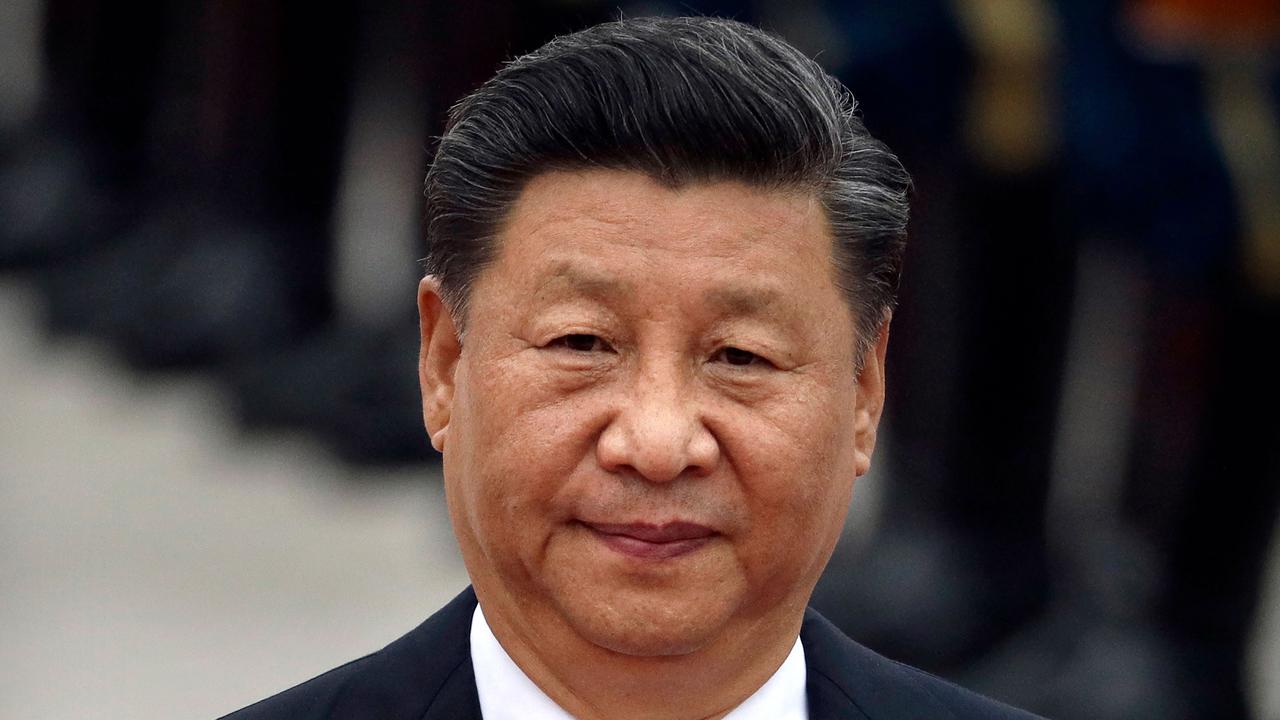China threatening Taiwan is more beneficial than invading
There’s one threat China has persistently made for decades, but there’s a clever reason the country has never followed through with it.
Intimidation gets results. And that’s why China may be less willing than feared when it comes to invading Taiwan. For now.
The drums of war have been beating loudly throughout 2021.
Defence Minister Peter Dutton told an Australian Press Club luncheon late last month that “If Taiwan is taken, then surely the Senkakus are next. Please don’t rely on your imagination. The Chinese Communist Party could not be any clearer — not always with their words, but certainly with their actions.”
But it was the words of Beijing’s “wolf warrior” diplomats that had prompted the minister to take the podium on the subject of “regional order”.
“Does the Chinese government wish to occupy other countries? Not in my judgment,” added Dutton, “but they do see us as tributary states”.

Similarly, conflicting sentiments out of Beijing have been consuming international affairs analysts around the world.
Taiwan is clearly a sensitive subject. As is the East and South China Seas.
But does Beijing mean what it says? Whose words do we listen to? And who are the messages aimed at, anyway?
“(Taiwan is) used to this type of low-intensity Chinese military provocation,” argues Taiwan Studies fellow Wen-Ti Sung at the Australian National University.
“In fact, they have been living in the near-constant presence of Chinese military and diplomatic pressure for over a quarter-century.”
And that, says historian A. A. Bastian, offers insight into the method behind Beijing’s madness.
“Over the last few decades, threatening Taiwan has been advantageous for China,” Bastian writes.
“(This has) often gotten it what it wanted, and has been more fruitful — and far less costly — than seizing the island by force would have been.”
Conflict short of war
War is complicated. Open acts of aggression are sanctioned by international law. An invasion is hard to ‘spin’, even with an army of online trolls.
Like Russia and its invasions of Crimea and Georgia, China would face international sanctions, even if its veto on the UN Security Council blocks any formal resolution.
Threats, however, are outside international war.
It occupies a “grey zone” where hostile behaviour falls just short of triggering open conflict. As do co-ordinated clashes by nominally civilian fishing militia and coast guard units, regular military probes and economic coercion.
“Full-scale action against Taiwan is expensive, especially with Western-allied military forces in the region; maintaining an occupation would be even more so,” writes Bastian.
“In contrast, by issuing warnings, flying some aeroplanes, splashing a couple of missiles into the water, and recording videos for social media, China has leveraged outsizes influence.”
Elections. Trade deals. Vaccine distribution. Even Hollywood movies. All have bent to China’s will in moves aimed at not angering Beijing. And Beijing has built up that influence through demonstrating its willingness to take extreme offence at even the most minor challenges to its will.
“This longstanding Chinese strategy of brinkmanship theatre has been a double-edged sword. It has encouraged pragmatism in Taiwan’s pursuit of a stronger identity on the global stage, but it has also alienated many from Beijing,” says Wen-Ti.
Crying wolf-warriors
Taiwan, says Wen-Ti, is familiar with Beijing’s intimidation and pressure tactics. And it’s suffering “alarm fatigue” after decades of wolf-warrior diplomacy.
The threat of war was real and imminent after the Chinese Communist Party (CCP) took control of the mainland and the then autocratic Republic of China government fled to Taiwan. Only the intervention of the US, and a decades-long crisis on the mainland, curtailed this.
Beijing’s hostility similarly targeted Taiwan’s first democratic election in 1996.
War games were played. Missiles were test-fired. Combat aircraft and warships made their presence felt near internationally defined borders. “Reunification” was a common refrain among state-controlled media.
China staging a mock invasion of #Taiwan? http://t.co/AB8ESGZQ0x@Diplomat_APAC@SCS_news#ausdef@ASPI_orgpic.twitter.com/3AA1DKaWwW
— David Feeney (@Feeney4Batman) August 10, 2015
A similar ploy was played in 2016, after the election of Tsai Ing-wen as Taiwan’s president in 2016. She had defeated a vocally pro-Beijing opponent.
Since then, however, Beijing has redoubled its attempts at intimidating opponents worldwide.
It follows a well-established pattern.
First, Beijing voices its outrage at a “wrong” action.
Then it issues a threat of consequences.
Finally, it demonstrates its ability to apply those consequences – either militarily or economically.
“These threats can be staged with incredibly few resources and are ambiguous enough to avoid regulation under international law,” says Bastian.

But such brinkmanship needs constant escalation. Otherwise, it becomes little more than noise.
And that could already be a problem when it comes to the West.
“The changing dynamic of US-China relations could mean that these threats no longer elicit the same advantages or have the same efficacy — causing a dangerous shift in a long-established pattern,” warns Bastian.
Buying time
“National rejuvenation” is one of Chairman Xi Jinping’s greatest visions for a new China.
“Compatriots on both sides of the Taiwan Straits should stand on the right side of history and join hands to achieve China’s complete reunification and the rejuvenation of the Chinese nation,” Xi told the 110th-anniversary of the 1911 revolution that overthrew the last emperor.
Most Taiwanese, however, support the status quo.
Only 10 per cent want unification with China. Barely 2.7 per cent identify as “Chinese”.
And those figures continue to fall amid Beijing’s hostile bluster.
“Twenty years on, China still hasn’t gone beyond threats, coercion, and diplomatic temper tantrums. Nothing has been fired at Taipei,” notes Bastian.
“Yet the threat itself is the point.”
That threat, however, is growing tired.
Taiwan is growing ever bolder in its assertions of independence. Especially after the collapse of Beijing’s loudly proclaimed “One China, Two Systems” in Hong Kong.
“Ironically, China could get most of what it actually benefits from in Taiwan by allowing its independence,” says Bastian.
“It would have a reliable and close trading partner with a thriving economy, a neighbour that shares cultural origins and is sympathetic to the idea of Chinese having a bigger voice in the world.”
Given that Chairman Xi and the CCP have staked their reputation and authority on the idea of “reunification”, that remains unlikely.
“Keeping an eye on the long game, Beijing is willing to risk short- to medium-term costs in losing hearts and minds in Taiwan,” observes Wen-Ti.
“The hope is, in time, it can eventually regain the initiative.
“For this reason, being able to deter further movement towards independence may be sufficient to buy China much-needed time.”
Jamie Seidel is a freelance writer | @JamieSeidel






